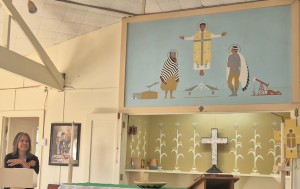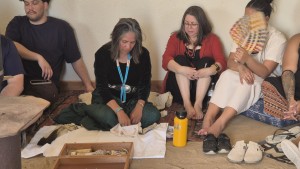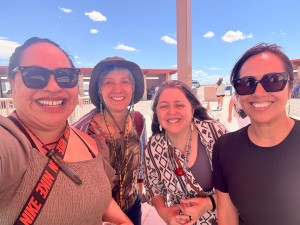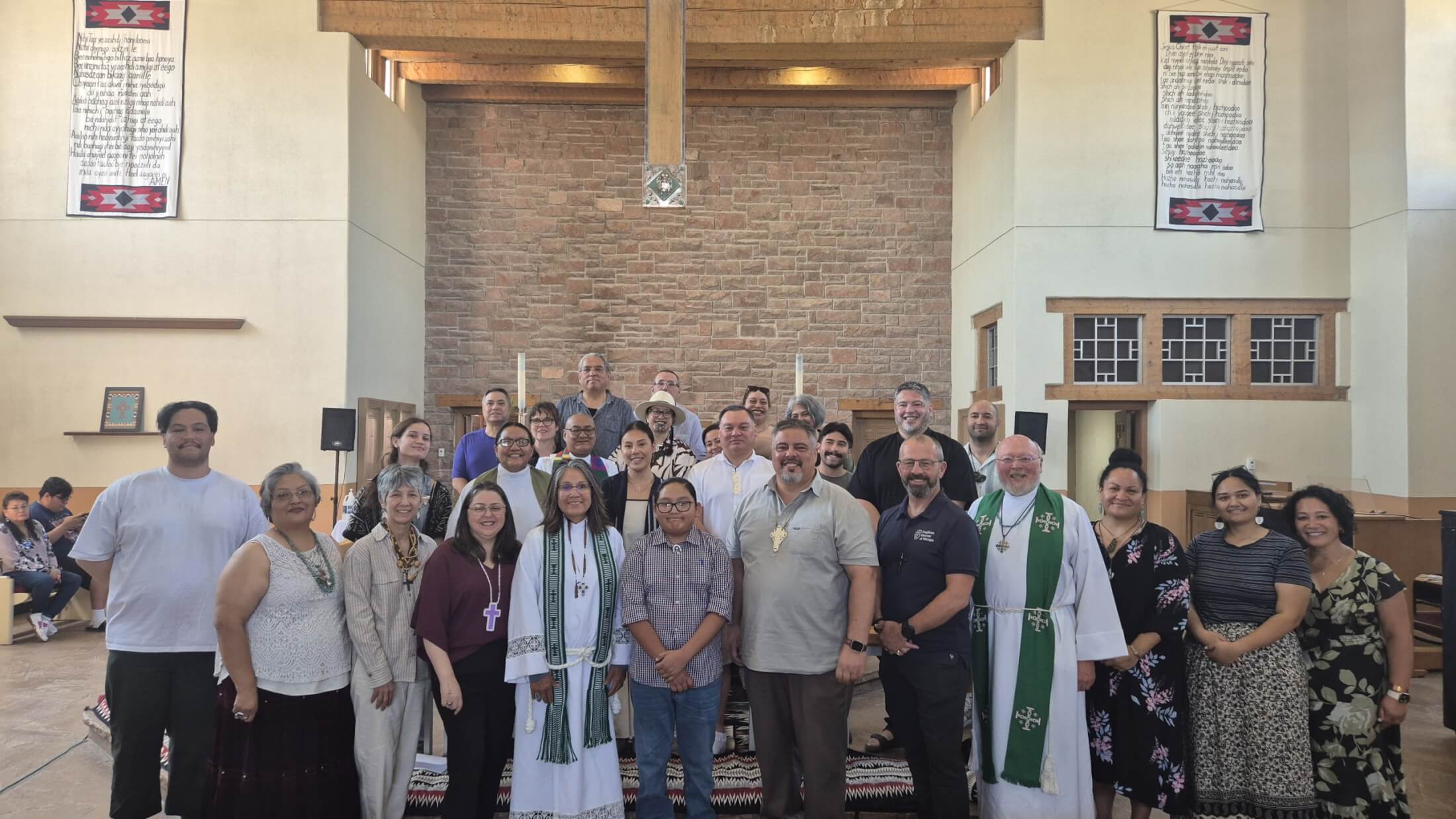The Most Reverend Marinez Bassotto, Primate of Brazil and Bishop of Amazonia, where many of Brazil’s Indigenous Anglicans live, joined the pilgrimage to Navajoland earlier this month and returned inspired to continue advocating for Indigenous rights and the integration of Indigenous cultures into the life of the church.
“I felt that there a was a moment of deep connection with all the indigenous people present together, in this area.
Archbishop Marinez says, “This is a profoundly powerful experience, shaped by the natural beauty and strength of the land, and by the lives, culture, and way of life of the people.”

Dine Jesus pictured inside a local church
Archbishop Marinez has been a leading voice for the rights of indigenous peoples. Under her leadership, the Anglican Episcopal Church of Brazil has embraced Indigenous languages, music, and symbols in worship, affirming their sacred value.
The experiences felt amongst the Navajo churches and historical sites reaffirmed her commitment to pushing for indigenous Anglicans in Brazil to adopt their own spirituality within their faith.
“They are working to bring forward their traditions and the spirituality of their ancestors, weaving together traditional knowledge and Christianity through symbolism, and through the architecture and art within the church,” she says.
“It was very beautiful to see a Dinѐ Jesus.”
The Navajoland pilgrimage was a first of its kind for Archbishop Marinez to experience. And she believes the future of the Anglican Communion is indigenous.

Rev. Canon Cornelia Eaton leads a spiritual ceremony inside a hogan
“The future of the Anglican communion lies in the church being contextualised to local communities rather than remaining a colonial church.
“It has to have the characteristics of the indigenous people. So, the future of the Anglican Communion is to be become an indigenous church.”
Archbishop Marinez is also a staunch leader on environmental justice, speaking out on the deforestation of the Amazon rainforest and the effects on indigenous tribes and pushing eco-theological narratives within the church.
As such, she has invited indigenous church leaders, including those in Aotearoa New Zealand and Polynesia to attend COP 30 in November, to be held in Belém, the gateway to the Amazon river.
“In my perception, this will be the COP of the indigenous people. So it’s another step to strengthen this connection, and also it is an opportunity to have a strong voice of the Anglican Indigenous.

At the Four Corners Monument with other pilgrims.
“It is also an opportunity to get to know the Amazon.”
Archbishop Marinez has been a trail blazer, not only in Brazil, but in South America as a whole, becoming the first female elected as a Bishop on the continent in 2018, and as the first Latin American female Primate in 2022.
